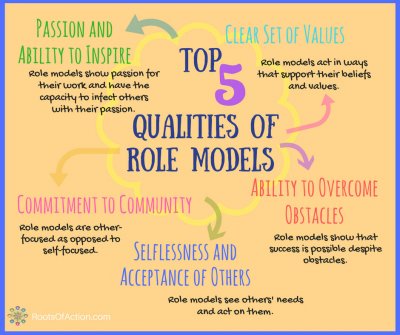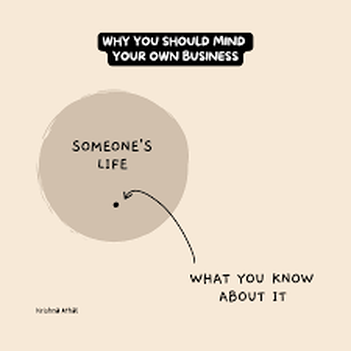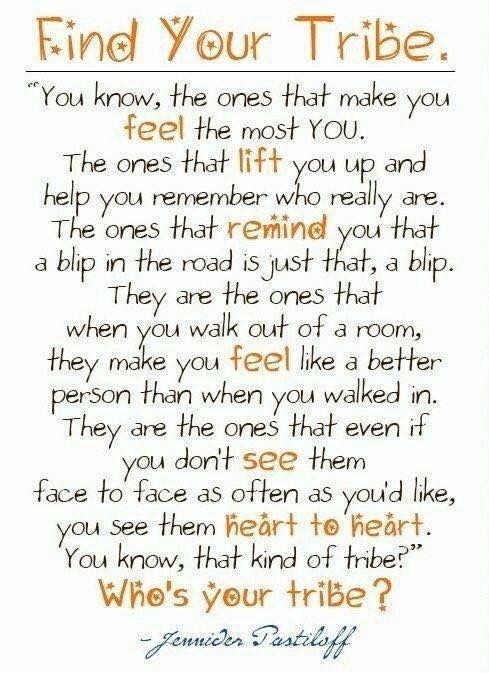 I know I have mentioned several times that I also teach online graduate courses, but if this is your first time reading my blog, let me catch you up. I teach Educational Leadership courses for online students at one university, and I mentor lots of doctoral students at two other universities (who are writing their dissertations). I adore both types of work, even though they are so different from one another. My masters' level students often get quite surprised by my presence in their discussion threads. I poke my nose in and lurk (definitely not in a creepy way) in a way in which I firmly believe all good teachers should do when their own students are engaged in table group discussions or even partner discussions. Why? Because we simply need to know what is being talked about in order to get the finger on the pulse of what is happening in each of those conversations. Can I hear them all? Of course not, even when I am teaching a face-to-face workshop. However, I think it is one of the most important strategies I can share with novice or pre-service teachers and/or administrators. So, if this is a strategy we expect teachers to use in their classrooms, then principals need to use it when they are listening to conversations between their own teachers in Professional Learning Communities or professional development (PD) opportunities. So, if this is a strategy school leaders should use, then I should be modeling it for them when I teach a face-to-face workshop or an online course. I try to model several types of engagement strategies, discussion techniques, classroom management routines, and methods of building rapport when I teach, as well. I call participants by name (in my online classes, I ask them what they want to be called as names and relationships matter); I use chimes to ring to bring us all back together after a group discussion or activity in in-person PD, and I use multiple engaging techniques specific to the outcomes we are attempting to reach. I always am certain to tell my participants that I don't ring chimes because it is "cute". In fact, I don't do anything because it is "cute". I ring chimes because music tends to cut through even louder group conversations, which allows me to ask people to pause their conversations and come back to their tables and get ready for the next phase of teaching and learning. I, in fact, also tell people that whenever I show a video, it is for a specific purpose. If they need a graphic organizer to help them keep track of what they are gleaning from the video, I try to provide that, as well. Watching a teaching video without a purpose is...well...purposeless. Again, I am trying to model what I think good school leaders should do for teachers, and what teachers should be doing for their students. Recently, I got feedback from a participant in a workshop who said, "I didn't like that she used chimes. It was too childlike." I admit I was shocked. First of all, hadn't I explained the purpose of modeling? As a principal, I used to use puppets every Friday morning for our news show. Libby the Black Lab would tell Mud the Chocolate Lab how she should learn better manners as a growing puppy (thereby teaching the students they should model good manners for one another in the classroom or lunchroom). I had a bald eagle (named Eagle Eye) who would say, in a very professorial-sounding voice (stick with me), "I have SEEN......" and then he would launch into what he was seeing as good or bad examples of leadership around the school. When I talk about the use of those puppets, I always jokingly say, "I think I could have taught the students how to multiply fractions using those puppets as they were typically riveted to the news show, not caring that I am not a masterful puppeteer and my lips would move the whole time." But I also make sure I tell people that not everyone is comfortable using puppets, as a teacher or as an administrator (I'm so wacky, I had about 25 different puppets with 25 different personalities and, therefore, 25 different voices and personalities I had to memorize). I always say to use what works for you! If it feels comfortable to YOU, it will feel comfortable for your audience. This little piece of feedback was literally the first time I have ever had someone say something that indicated they felt "belittled" by my use of chimes as a transition tool. I SO badly wish they would have asked about it during the workshop, as I would have turned to the whole group of school leaders and asked, "What do you use to model for your teachers as transition tools they can use in their own classrooms?" I have a hunch I would have heard things like, "I do rhythmic clapping" or "I model the call and response I like to see teachers use like 'All set?' and then the students say 'You bet'." Some might say, "I don't use any gimmicks with my teachers. I just yell at them to get quiet so we can begin our meeting." Ugggh! Let's yell to get people quiet. Wait....what??? Just as those Russian nesting dolls fit so nicely within one another, so I see with modeling what we want to see at the next level of "doll". Whether it is a set of chimes, a silly song, a call and response, or WHATEVER, teachers are watching school leaders, and school leaders (or potential ones) are watching me to see if I am standing and delivering content (versus engaging them in content). It is incumbent upon each one of us to model different strategies for different purposes. Maybe I have mentioned that I am a perfectionist. While most all the other feedback from that session was extremely positive, I got stuck on that one negative statement. That, indeed, is precisely the type of negative thinking that I encourage people to avoid, by the way. "Do not let 5% of the group take up 95% of your time", whether that time is physical or mental. So, I'm posting about it to get it off my chest and be done with it. :) So, what do you model for your own children, students, teachers, or others with whom you work? I can't wait to hear your thoughts. Happy Communicating!! Shelly
0 Comments
In one of the classes I'm teaching for Educational Leadership at Grand Canyon University, I posed a question about who the students would or could talk to if they found themselves in a position in which they didn't know what to do or how to handle a particular school situation. One of my students spoke of the "tribe" she uses to bounce ideas off of. Several of us have posted responses to her practice. I am so blessed to have several tribes with whom I use for different situations in life.
Professional In presenting to teachers, school leaders, and university professionals all over the world, I have been so happy to find people with whom I can co-present, people who I go to for new ideas on presenting strategies, administrators who network with me and continue to become true friends and comrades in this education journey. I tell new teachers and administrators to "stick with the winners" and only go to those people for advice. Some people in education (any profession, also, of course) can get burnt out and share their burnt out feelings. Who needs that? Spiritual When faced with a situation in which I'm feeling resentful, discouraged, or troubled by worry, I have a tribe of spiritual advisors and fellow travelers who are still making their way through situations that used to baffle me. We can discuss our journeys, give each other advice and not be offended in the least if the person decides to go a different direction (after all, it is not my business to "grade" someone on the choices they make, only to be there to support). I am blessed to have a new tribe member, who I call my spiritual guru. She has saved my butt a couple of times in the past couple of years, and I am eternally grateful. Denise, you are my guru, but I promise not to put you on a pedestal! Lifetime friends Dave makes fun of me because I tell so many people "I love you". You know why I do that? Because I love so many people. I know better than to share every single secret in my life with every single person, but I still love and cherish the relationships I have with so many friends from so many different seasons of my life. Let me preface this by saying I went to 8 different schools in my 12 years of K-12 schooling. I still have managed to stay friends with Tricia, my bestie from 4th - 6th grade. I also am still EXTREMELY close to my rock and cornerstone best friend from high school, Denise. She and her family even vacation with Dave and me once every other year to Cabo San Lucas. We're doing it right now, by the way! Robin and Kelly were my best friends in college; we were in each others' weddings, and we now get together at least twice a year (husbands are allowed to come for the summer trip). We have a group of 8 or 9 of us from Trinity who gather together every year and we group text. We have seen each other through cancer, divorce, becoming grandmas, and always so much laughter (and crying because we are laughing so hard). The guys have simply resigned themselves to the notion that you can't contain this joy, so they no longer try. All of these friends are near and dear to me and are unique in each way we value our friendship. What about you? Who is in your tribe? And for what reasons do they stay there? Happy Communicating (in and out of your tribe), Shelly  A dear spiritual advisor of mine once (or maybe 100 times) told me that it was none of my business what others think about me. I hear the words; I comprehend the words; I can spell those words; but no matter what, I still often worry what other people think about me. Part of it, quite honestly, is the nature of my work. I teach every one of the Educational Leadership courses at a couple of universities (at varying times, of course; not all at the same time). I care so much about the reputations of my students when they become school leaders that I am often tough on their spelling and grammar they use in their writing. I also pretty strictly adhere to the rubrics on which each assignment is graded. I frequently will have a student tell me in the first week or so of the course that I am "ruining" their 4.0 GPA because I "gave" them an A- on a paper. I want to say "Oh brother! Just wait until a parent comes to your office with a memo you wrote that contains multiple writing errors to say, 'You are the principal of an elementary school where my child is supposed to be learning how to write correctly, and you can't even check over your work??' Then tell me how much that A really mattered." The problem is that grading is hard work. Giving feedback is only hard if it is done well- substantively, timely, and purposefully. As I was getting ready to deplane my first flight this morning on my way to go work with administrators on building a culture of trust in their schools, I happened to glance down at a passenger's phone. He was looking at his Inbox on his email, and there looked to be 100s (!) of unread emails. I almost started sweating and twitching, wanting to take that thing out of his hand and help him organize his emails into folders.....but shoot!! the name of my blog is "mind my own business", so....ummm....that wouldn't be good, would it? You see, it freaks me out because that is not how I operate, but that very likely works for him. If my Inbox has one email in it, I have to DO something with it---put something on the calendar, put the email in a folder, or return the email, etc. But that is how I operate----what he does is his business, not mine (despite the fact that I was having palpitations about it). On the flipside, I have a rather obsessive need to grade my students' papers within 24 hours after they are due at 11:59 p.m. on Wednesday night. This is not a requirement; this is not even close to being an expectation by the university, but it is my business. I feel strongly that my students need quick feedback that is content and writing specific within a day so they can begin to work on next week's assignments. I even believe that this is modeling for future school leaders what teachers need in their own teaching----frequent coaching and feedback sessions in which teachers are able to reflect on their own teaching. Maybe the student in each class who is mad at me for ruining their GPA doesn't say anything, but the end-of-course evaluations tend to indicate that students really appreciate the feedback. I keep in touch with my students, sometimes long after I have had them in class. I've been blessed to go to lunch or dinner with students from a course I taught at my alma mater three years ago just to keep in touch. One of my students called me the other day to tell me she had just been offered (and she accepted, of course) a job as an Assistant Principal. She wanted to thank me for some advice I had given the class two years ago! Wait! Dave doesn't even remember something I told him last week, and you remember my advice from two years ago??? (Just kidding---Dave hangs on my every word, I'm sure!) So, the way I do things and the way you do things may be totally different, but if it works for us, then that is my business and it is your business to mind our own business. Currently, my business is ensuring that the work I do for these administrators in this school get the best of me and my facilitation tomorrow, so I better make it my business to go catch my next flight. After all, someone in the seat next to me might need my advice on how to organize their mail in their Inbox. Happy Communicating, Shelly |
Shelly ArnesonCategories |



 RSS Feed
RSS Feed